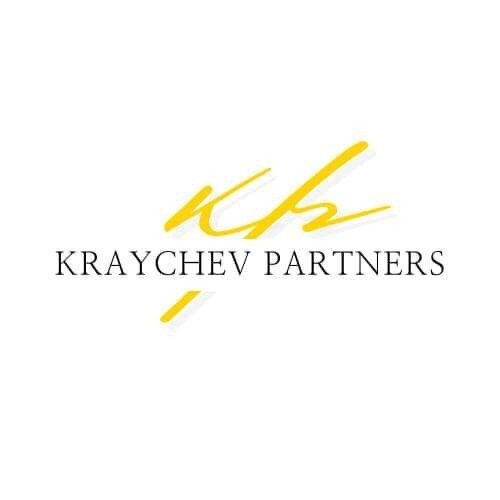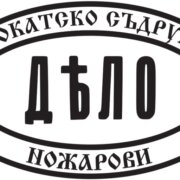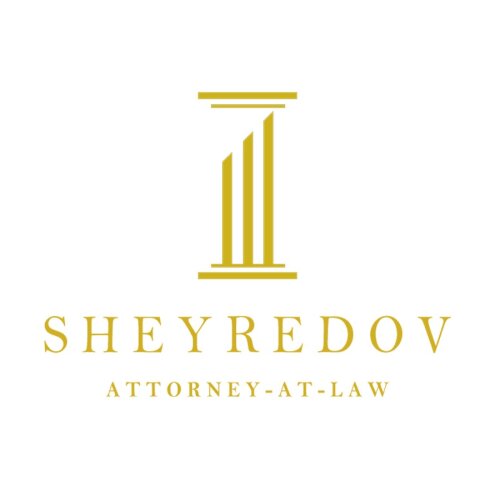Best Nonprofit & Charitable Organizations Lawyers in Plovdiv
Share your needs with us, get contacted by law firms.
Free. Takes 2 min.
List of the best lawyers in Plovdiv, Bulgaria
About Nonprofit & Charitable Organizations Law in Plovdiv, Bulgaria
Nonprofit and charitable organizations in Plovdiv, Bulgaria, operate under a legal framework designed to promote social welfare, culture, education, and various other public interests without the primary aim of generating profit. These entities, often registered as associations or foundations, play a crucial role in addressing community needs, advocating for social issues, and providing services not typically covered by the government. Legal regulations concerning their formation, governance, and activities are aimed at ensuring transparency, accountability, and efficiency in the sector.
Why You May Need a Lawyer
Understanding the legal landscape is essential for nonprofit and charitable organizations to operate effectively. Common situations where legal assistance might be necessary include:
- Formation and registration of the nonprofit entity.
- Drafting and reviewing bylaws and governance structures.
- Compliance with local and national regulations, including tax obligations.
- Issues concerning employment law for hiring staff or volunteers.
- Contract negotiations and partnerships with other organizations or government bodies.
- Management of donations and grants, ensuring legal and financial accountability.
- Legal disputes or litigation involving external parties or internal governance.
Local Laws Overview
In Plovdiv, as in the rest of Bulgaria, nonprofit organizations are primarily governed by the Non-Profit Legal Entities Act (NPLEA). Key aspects of this legislation include:
- Registration: Nonprofits must be registered with the competent court to obtain legal personality.
- Types of Entities: Organizations can be associations or foundations, each having distinct legal characteristics.
- Governance: Clear guidelines are laid out for organizational structure, leadership roles, and responsibilities.
- Financial Regulations: Nonprofits must adhere to strict financial rules, including accounting, reporting, and auditing.
- Tax Implications: Certain tax exemptions and incentives exist for eligible charitable activities.
- Public Benefit Status: Organizations can apply for this status, potentially enhancing their credibility and access to resources.
Frequently Asked Questions
What type of non-profit entities can I establish in Plovdiv?
In Bulgaria, you can establish either an association or a foundation. Associations are membership-based organizations, while foundations are set up with an initial endowment to pursue a public or private objective.
What are the registration requirements for a nonprofit organization?
Nonprofits must submit statutes, a founding act, and an application to the district court. The process may involve legal fees and takes several months to complete.
Are nonprofits in Plovdiv eligible for tax exemptions?
Yes, nonprofit organizations engaged in public benefit activities can apply for tax exemptions. Specific requirements must be met to qualify for these benefits.
How can an organization gain public benefit status?
To obtain public benefit status, an organization must apply to the Ministry of Justice, demonstrating its activities’ alignment with legally recognized public benefit purposes.
Are there any ongoing compliance requirements for nonprofits?
Yes, nonprofits must submit annual financial reports, maintain accurate accounting records, and comply with reporting standards set by the national authorities.
Can a nonprofit distribute profits to its members?
No, under Bulgarian law, any profits generated by a nonprofit must be reinvested in the organization's activities to further its mission.
Do nonprofits need a board of directors?
Yes, nonprofits in Bulgaria are required to have a governing body, typically known as a board of directors, responsible for overseeing activities, compliance, and strategic decisions.
What legal obligations do nonprofits have towards their employees?
Nonprofits must comply with Bulgarian employment laws regarding contracts, pay, benefits, and workers' rights regardless of their sector-specific focus.
Can foreign nationals establish a nonprofit in Plovdiv?
Yes, foreign nationals can establish nonprofits, provided they comply with local legal requirements and registration procedures.
What are the consequences of not complying with nonprofit regulations?
Noncompliance can result in penalties, loss of public benefit status, and legal actions against the organization, impacting its operation and reputation.
Additional Resources
For more assistance and information on nonprofits and charitable organizations in Plovdiv, you can consult the following resources and entities:
- Bulgarian Center for Not-for-Profit Law (BCNL): Offers extensive resources and guidance on legal matters for nonprofits in Bulgaria.
- Ministry of Justice, Bulgaria: Provides official forms and information about the registration and regulation of nonprofits.
- Plovdiv District Court: Handles the registration and oversight of nonprofit entities in Plovdiv.
- Pro Bono Partnerships: Legal clinics and initiatives may offer free legal advice and representation for nonprofit organizations.
Next Steps
If you require legal assistance relating to nonprofit and charitable organizations in Plovdiv, consider the following steps:
- Conduct initial research to understand the basic legal framework and your requirements.
- Consult a specialized attorney with experience in nonprofit law to discuss your specific situation.
- Engage with local non-profit networks and associations for peer advice and support.
- Contact legal aid services or pro bono initiatives if you require affordable legal support.
It's crucial to ensure proper legal compliance and governance to maintain the integrity and operational efficiency of your nonprofit or charitable organization.
Lawzana helps you find the best lawyers and law firms in Plovdiv through a curated and pre-screened list of qualified legal professionals. Our platform offers rankings and detailed profiles of attorneys and law firms, allowing you to compare based on practice areas, including Nonprofit & Charitable Organizations, experience, and client feedback.
Each profile includes a description of the firm's areas of practice, client reviews, team members and partners, year of establishment, spoken languages, office locations, contact information, social media presence, and any published articles or resources. Most firms on our platform speak English and are experienced in both local and international legal matters.
Get a quote from top-rated law firms in Plovdiv, Bulgaria — quickly, securely, and without unnecessary hassle.
Disclaimer:
The information provided on this page is for general informational purposes only and does not constitute legal advice. While we strive to ensure the accuracy and relevance of the content, legal information may change over time, and interpretations of the law can vary. You should always consult with a qualified legal professional for advice specific to your situation.
We disclaim all liability for actions taken or not taken based on the content of this page. If you believe any information is incorrect or outdated, please contact us, and we will review and update it where appropriate.

















